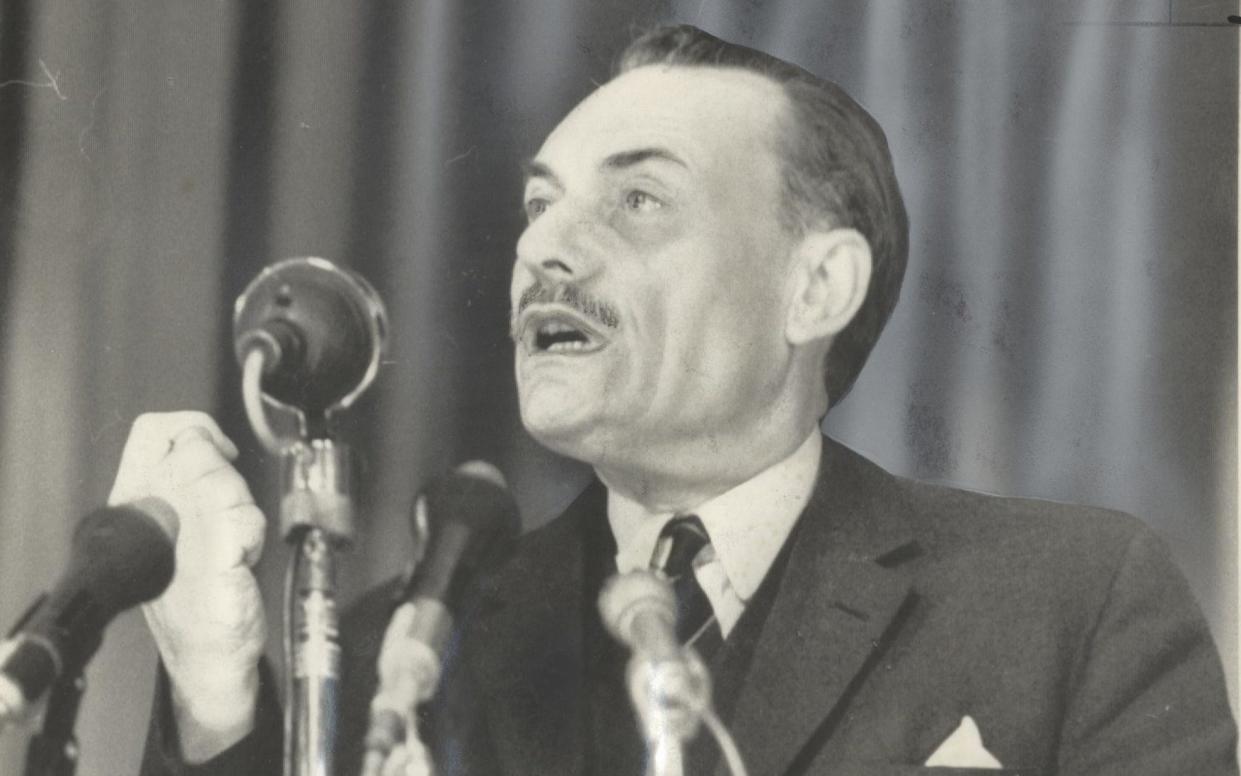Archive on 4 – 50 Years On: Rivers of Blood

The half-century since Enoch Powell’s Rivers of Blood speech, which warned against integration and uncapped immigration, was never going to go unmarked. But the BBC can’t have foreseen the media volcano which would erupt after the Archive Hour presenter Amol Rajan tweeted with a certain amount of self-promoting bumptiousness that: “On Saturday for [the] first time EVER, Enoch Powell’s River of Blood speech will be read in full on UK radio.”
This made it sound as if the programme were unearthing a lost treasure akin to the last two volumes of Gogol’s Dead Souls, rather than a piece of fiery rhetoric which has remained a consistent ghost in Britain and beyond since it was first uttered at Birmingham’s Midland Hotel in April 1968.
However, the Corporation’s decision not to bow to pressure to pull the programme from the schedules seems justified by the documentary which, although lacking in several quarters, did at least aim to give a number of diverse voices to the ever-present controversy.
The speech was read in full (although separated into several parts by commentators ranging from David Lammy MP, 2-Tone star Pauline Black and The Telegraph’s Simon Heffer), and so you were able to see the accomplished structure of Powell’s speech set against the ugliness of what he was saying.
However, actor Ian McDiarmid’s reading perhaps strove too far to emphasise Powell’s idiosyncratic voice – the sing song modulation, the soft "R"s – which rather defused the incendiary nature of what he was saying. McDiarmid has played Powell to great acclaim on stage (in Chris Hannan’s play What Shadows), but on radio, which of course emphasises the oratory, the effect was unsettling.
Big thing BBC will be remembered for in 2018 is their full, dramatic, unexpurgated broadcast of Enoch Powell’s incendiary racist speech of 1968. A speech which, made today, would lead to prosecution for incitement to racist violence. Black day for BBC tomorrow. RT if you agree
— Andrew Adonis (@Andrew_Adonis) April 13, 2018
Rajan’s presentation was considered and rather less sensationalist than his Tweet might have suggested, but there was a sense of trying to cram too much in. In the age of the political soundbite (which, no doubt, Powell would have found unpalatable), many fine voices were not given enough time to sustain their critical thoughts. For example, some eloquent and very moving recollections from Professor David Dabydeen about life as a young immigrant living in fear of reprisals after the speech seemed mercilessly edited.
The documentary also failed to examine the complexities and contradictions of Enoch Powell. This was a man who, after all, was in love with Empire, and having spent time in India in the dog days of the Raj had declared Indians as intellectually superior to white Europeans. There was no sense of his essential strangeness, a man who according to Hannan relished autumn when “the rooks are full of foreboding”, and very little on how the ancient world had shaped his intellect (apart from the invocation of Virgil in the speech’s most famous moment – “Like the Roman, I seem to see the River Tiber foaming with much blood.”).

Without enough background information, it was impossible to speculate on Powell's contradictions (those who deny suggestions of racism will point to the fact that his principal concern was about numbers of immigrants).
However, anyone who heard the documentary this evening, with its talk of “wide-grinning piccaninnies” and incendiary statements such as the fact that “the black man will have the whip hand over the white man” will be left in no doubt that the speech itself is racist. It’s a prejudiced piece of political opportunism which will no doubt continue to make its presence felt.
And in this age of knee-jerk reactions and dog-whistle politics, that’s all the more troubling.
Archive on 4: 50 Years On – Rivers of Blood is on iPlayer.


